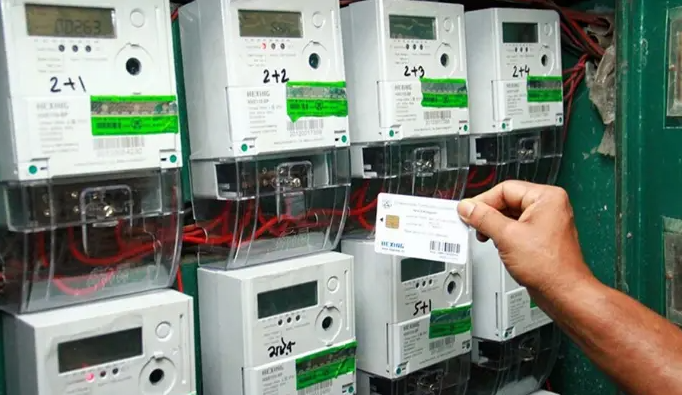Only an estimated 14.8 per cent of electricity consumers in Nigeria consumers in Nigeria are currently using a pre-paid billing system, while 85.2 per cent used an estimated billing system out of the total households connected to the national grid.
Also, 86.6 per cent of households had electricity supply, and over 58 per cent of them are connected to the national grid.
In addition, the average monthly expenditure of households on electricity as estimated at N4,155.8.
Furthermore, 19.4 per cent of households reported using liquefied petroleum gas (LPG), indicating that about one in every five households use LPG, while their average monthly expenditure on LPG stood at N10,239.7, across the surveyed states.
This is contained in the Nigeria Residential Energy Demand-Side Survey (NREDSS), 2024 Report conducted by the National Bureau of Statistics (NBS), in collaboration with the Federal Ministry of Power (FMP), the Energy Commission of Nigeria (ECN), the International Energy Agency (IEA), and the European Union (EU).
The NBS said the survey was commissioned to assess and estimate the energy demand in the residential sector of nine states as a pilot case study for the 2024 reference period.
The Statistician-General of the Federation and Chief Executive Officer, National Bureau of Statistics, Prince Adeyemi Adeniran said the main objective for the conduct of the survey is borne out of the need to have a comprehensive understanding of energy consumption patterns among Nigerian households.
The NBS stated that an estimated 67.8 per cent of households in Nigeria use fuelwood either for domestic, agricultural, commercial, cultural, or religious purposes.
“About 41 per cent of households reported purchasing fuelwood, closely followed by cutting/collection (39.0 per cent), and only 18.9 per cent of households used other means such as barter, gift, borrowing etc.
“More than half of the fuelwood cut/collected by households, 55.3 per cent were branches, stems, and trees. An estimated 67.8 per cent of households used the fuelwood either for domestic, agricultural, commercial, cultural, or religious purposes,” the NBS stated.
The survey also found that one in every five households, 22.0 per cent, used charcoal during the reference period, and among the households using charcoal, 21.6 per cent purchased the product, and only 0.3 and 0.6 per cent acquired it through their own production, and other means respectively.
Prince Adeniran said the insights contained in the report provide sound evidence for policymakers, operators, and the general public to apply, even as the government seeks better outcomes for the energy sector as a whole.











